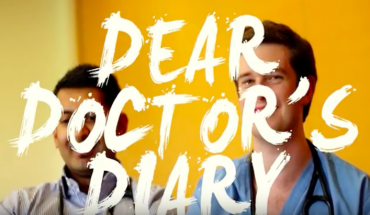Professor Paul Cosford, medical director of Public Health England, continues his occasional series on his experience as a patient with cancer and describes his first meeting with his palliative care team.
It is almost a year since I was told I have incurable lung cancer. Bad news, as a non-smoking 55 year old, but in fact, I am one of the more fortunate ones. For most people, the way the cancer had already spread would probably give an average of a year’s life expectancy. But a new treatment for a small group of lung cancers shrinks it for about a year, and I am fortunate enough to have one of those cancers. It looks like another similar treatment should work for some months when this one stops, so I hope still to have a small number of years to live. In the meantime I am physically well, regularly cycle 100 miles at a time, continue to work, and of course spend time with those important to me.
So why, when my focus is on living well now, did I decide recently to meet the palliative care team? I could say that it is recommended in NICE‘s cancer guidance and therefore based on evidence of best practice but that is only telling part of the story.
I didn’t want to go. I am not dying yet, and deciding to meet people who specialise in palliative care felt incongruous with where I am physically and, most of the time, psychologically. I joked with Gill, my wife, about having to meet the “death doctors”, but in the event the conversation was the most helpful one we’ve had about how we are managing to live with an incurable cancer.
I joked with Gill, my wife, about having to meet the “death doctors”, but in the event the conversation was the most helpful one we’ve had about how we are managing to live with an incurable cancer.
My regular hospital appointments are about checking how I am on the treatment, whether the disease is progressing, when I should have another scan, and what treatment may come next. These are the bedrock of my care and involve brilliant oncologists and their team who know everything there is to know about my cancer.
This was different and unrushed. We talked in depth about handling symptoms – how I can handle long bike rides when one of my side effects means I may need to jump off my bike at short notice and climb rapidly over the nearest gate hoping no-one is on the other side. I am determined not to stop riding the bike so need strategies to deal with it. I had the space to get upset when talking about the future possibility of brain secondaries which are common with my cancer, and whether, and if so how, they would change me as a person. And for the first time Gill had a proper conversation about how she is managing and where her personal support comes from. We talked about advanced directives, how I might avoid being inappropriately resuscitated whilst having all other appropriate treatment. And we talked about some of the practicalities of end of life care when the time comes. What sort of care is available, and how I can stay at home if at all possible.
I had avoided these conversations for a while, as to have them means having to face the realities of the cancer and what it may do to me and to those close to me. Living life well now means I cannot think about this all the time but the reality is that frequently I do. As a close friend who died of cancer recently pointed out, there is no point in pretending something isn’t there when it so obviously is. And what I realised was that meeting palliative care specialists now was not just about facing the fears of what may happen as and when the treatments run out. In the event it was more about how to cope physically and psychologically now, whatever the current situation is.
And what I realised was that meeting palliative care specialists now was not just about facing the fears of what may happen as and when the treatments run out. In the event it was more about how to cope physically and psychologically now, whatever the current situation is.
I found some scientific research last week which suggests that people who see the palliative care team from the start, long before they need end of life care, on average have less aggressive treatment at the end of life, and may even live longer. I have only met them once, but already feel better prepared for what might come, and in a funny way I think I am already managing life better as a result. It helps to debunk the idea that I should spend all my time chasing every last treatment and when (and only when) that eventually fails I will be “in palliative care”.
How we deal with an incurable disease is deeply personal. We need the best advice on the treatments available, and we need support to think about what is important to us individually as we face an uncertain future. I am fortunate to be getting both. Perhaps if we could do more to change the perception that you are either having treatment or you need palliative care, to the importance of combining treatment with support throughout the journey, it would help us realise that being diagnosed with an incurable disease does not have to be the end of life as we know it.
I suspect that an important step to achieving this is to change the label “palliative care”, otherwise too many of us will only associate them with support when we are dying and miss out on this invaluable part of our wonderful NHS. The team I see is called “Enhanced Support”, a much better name for what they actually do.
- And Life Goes On - 18th November 2019
- Paul Cosford – I still hope for a cure for my cancer - 3rd March 2019
- Paul Cosford: Meeting my palliative care team - 24th July 2018







